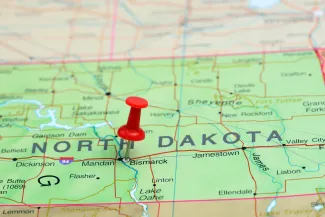
60 years into war on poverty: North Dakota agencies prioritize adaptability
© iStock - Mamphotography
(Prairie News Service) For six decades, the U.S. has been carrying out a coordinated effort to keep poverty levels in check.
Support offices in North Dakota say while needs may change, their multi-faceted approach to improving outcomes remains intact.
Policy analysts say poverty rates in the U.S. are well below where they were when President Lyndon Johnson declared a war on poverty in 1964. But they also note the mission is far from over.

Erv Bren is the executive director of the Community Action Partnership office in North Dakota's Williston region.
He said no matter what the landscape looks like, his staff takes a deep look at each client's situation as they map out a plan toward a better future.
"They look at their budgets, whatever it may be," said Bren, "so that they can be self-sufficient and hopefully land a decent, stable job."
Bren said he feels there are still misconceptions that low-income individuals simply need to find a job and their problems will be solved.
Community Action Agencies, celebrating their 60th anniversary, assist with things such as job training and housing stability to ensure a client can move up in the world without having setbacks.
North Dakota's poverty rate is currently at 11.5 percent.
Kari Schultz is the client services director for the Williston office. She said she feels a lot of their work still flies under the radar.
"[It's] like, 'Oh, I didn't know that you help with cooling assistance for seniors' or, 'I didn't know that you provided veteran supportive services,'" said Schultz. "It's getting that education piece out instead of just having the sign on the corner of the building."
Bren said putting energy into needs that rise to the top is key in preventing things from spiraling out of control.
A lack of housing is fueling demand right now, and he says after the pandemic upended progress in reducing poverty, his team is focused on renewing stability within the region.
The good news, he said, is that jobs are available. Clients need to realize the opportunity.
"Once you're out of the workforce for a while, you lose touch," said Bren. "You lose the connection and it's just the challenges that come up that are beyond the individual's control."

















